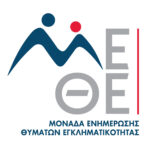Urban security is a major concern for all cities and territories. Finding the right ways to improve it is a complex task that requires collaboration and co-creation among the different stakeholders involved. The EU-funded BeSecure-FeelSecure (BSFS) project, implemented in Piraeus, Greece, is an example of how urban security can be coproduced through a participatory approach involving local authorities, citizens, and other actors.
The six Practice Sheets elaborated throughout 3 years of intensive work were produced in collaboration with the European Forum for Urban Security – Efus and demonstrate the project’s main innovative practices in a hands-on manner. The Fact Sheets showcased the following primary thematic interventions of the BSFS project: Baseline Assessment, Urban security Governance, ICT Measures, Social Interventions, Spatial Interventions, and Victims Support Unit. Each Fact Sheet presented the main interventions and methodologies used under the project to gain an overview of the relevant security situation and address the security-related challenges in the local context.
At first, the partners developed a Baseline Assessment to understand how different groups of the population perceived the security situation in Piraeus. The assessment evaluated the quantitative and qualitative characteristics of crime, as well as different factors related to citizens’ insecurity. The results showed that citizens believed urban insecurity was one of the city’s main problems, contributing to a sense of social and environmental degradation and low social cohesion.
To address these issues, the project focused on inhabitants, shop owners, and local employees. The Local Council for Crime Prevention was created to support local security actors in co-creating and implementing security strategies and prevention measures. The Council brings together local security actors and is a consultative body with an opinion-issuing role. Its work is based on data related to the feeling of insecurity as expressed by citizens through the baseline assessment.
The Council is supported by an innovative ICT tool, the Collaborative Urban Risk Management (CURiM) platform, which collects information on and enables the assessment of physical and cyber threats. Citizens can use the CURiM platform to evaluate urban risks, report incivilities, evaluate an offense or crime they have witnessed, and chat with other inhabitants. This provides policymakers with up-to-date information regarding the local security situation and enables the creation of tailored, evidence-based policies and geospatial mapping of risks.
The baseline assessment also allowed for a comprehensive understanding of victimization factors and led to the creation of the Victim Support Unit, which provides psychological, social, and legal counseling. The Local Council for Crime Prevention members contributed to the creation of the Victim Support Unit to respond accurately to identified needs in Piraeus. Both entities work closely, bringing together the local security stakeholders for enhanced and sustainable impact.
The project also implemented social and spatial interventions, such as student awareness sessions on bullying and cyber-threats, training sessions for students on the use of the CURiM app, and local shop owners training sessions to protect themselves from repeated victimization. Target hardening and regeneration-beautification of public spaces, consultation meetings with citizens of Piraeus to get insights into local issues of crime and security, and restoration of playgrounds were also implemented based on the needs expressed by Piraeus inhabitants through the baseline assessment.






